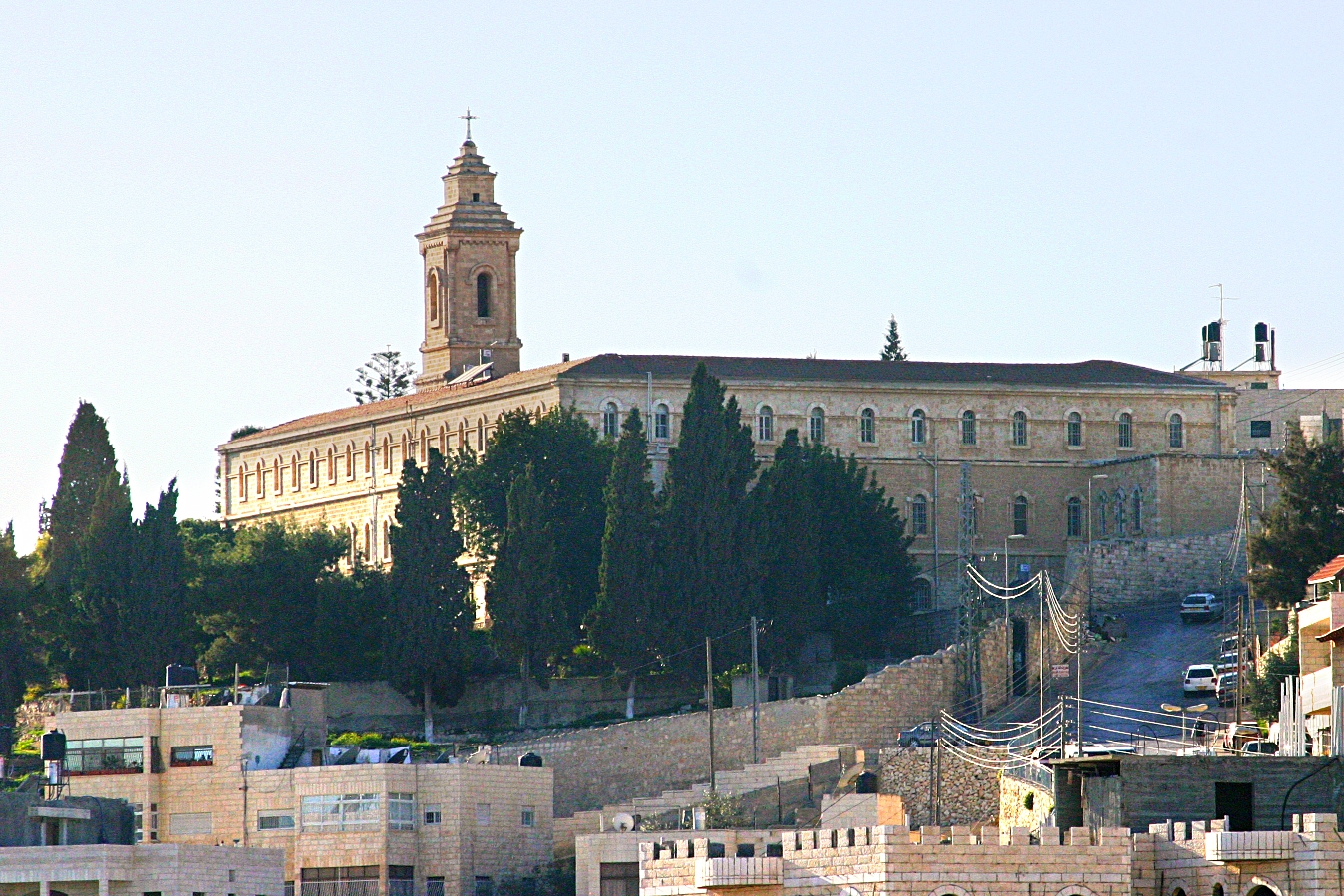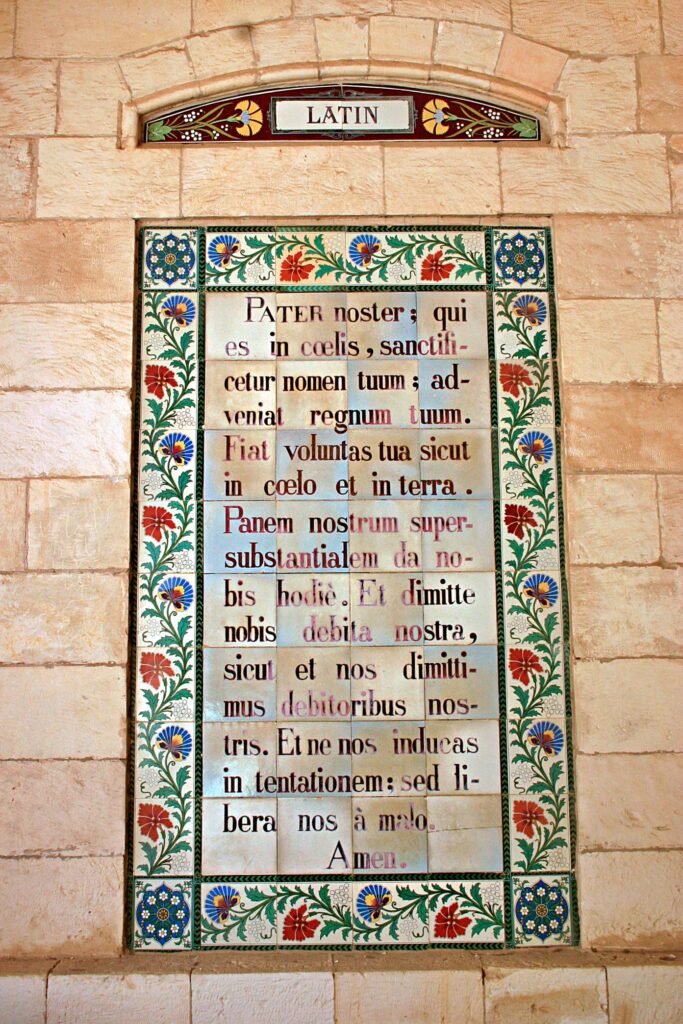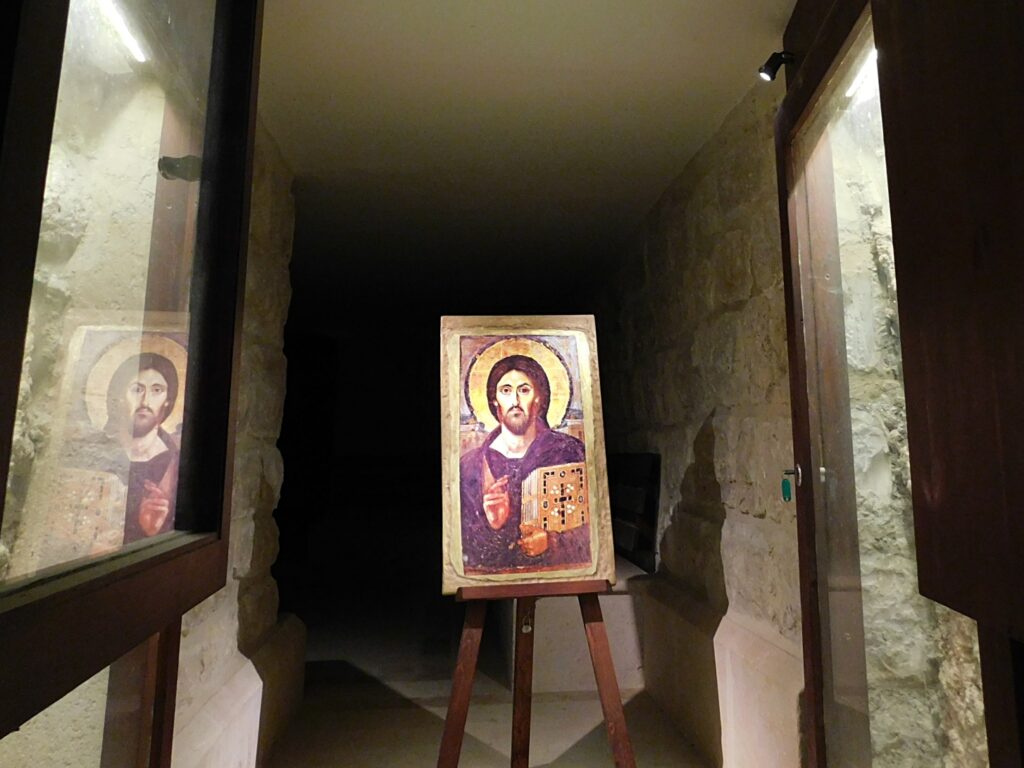#TomorrowIsSunday (EN+ES) A third of the Lord’s Prayer is about forgiveness


Pater Noster Convent_PhotoCredit Stanislau Lee
17th Sunday of Ordinary Time, Year C
Sunday, July 24, 2022
Gospel of Luke 11:1-3
EN: https://bible.usccb.org/bible/readings/072422.cfm
You can download the commentary on the Gospel and beautiful photos:
https://www.academia.edu/83612623/A_third_of_the_Lord_s_Prayer_is_about_forgiveness?source=swp_share
*
XVII Domingo del Tiempo Ordinario, Año C
Domingo, 24 de julio de 2022
Evangelio de San Lucas 11,1-13
ES: https://bible.usccb.org/es/bible/readings/072422.cfm
1. The most popular prayer in the world
“Our Father,” or the Lord’s Prayer, is the most well-known payer in the world’s history. It is extremely important because Jesus himself taught it. It is short and profound.
2. Key words
He said to them, “When you pray, say: Father, hallowed be your name, your kingdom come. Give us each day our daily bread and forgive us our sins for we ourselves forgive everyone in debt to us, and do not subject us to the final test.”
Every single word of “Our Father” is meaningful. Actually, every single letter is. In its Greek original in the Gospel according to Luke, the prayer contains 179 letters, 62 of which are words about forgiveness. This means that as much as 34 per cent of the Lord’s Prayer is about forgiving.
Jesus knew the human being and knew that each of us needs God’s forgiveness. Apart from that, we need to forgive one another so that our life would not become a Gehenna on earth.
Forgiveness is the thermometer of love. To love someone means to give them your life, your time, your emotions, your trust, etc. To forgive is yet another gift we can offer others.
3. Today
A priest walking up to the altar in a prison chapel tripped and fell down. All those present burst out laughing. During that Holy Mass, the priest said: “You see, anyone can fall, but it is essential that we also rise.” Years later, one of the prisoners confessed that these precise words changed his life.
Each of us can rise through the sacrament of reconciliation. In addition, there are three words that have great power: “please,” “thanks,” and “sorry.” The last word is especially useful in life, as evidenced by the Our Father prayer.

Pater Noster in Latin_PhotoCredit Stanislau Lee
*
1. La oración más popular del mundo
El “Padre Nuestro” es la oración más conocida de la historia del mundo. El mismo Jesús la enseñó, por eso es tan importante. Es corta y muy profunda.
2. Palabras clave
Entonces Jesús les dijo: «Cuando oren, digan: “Padre, santificado sea tu nombre,
venga tu Reino, danos hoy nuestro pan de cada día y perdona nuestras ofensas, puesto que también nosotros perdonamos a todo aquel que nos ofende, y no nos dejes caer en tentación ”».
En la oración del “Padre Nuestro”, cada palabra tiene un significado, e incluso se puede decir que cada letra lo tiene. Esta oración en el griego original del evangelio de San Lucas tiene 179 letras, y de ellas, 62 letras forman palabras sobre el perdón. Esto significa que hasta el 34% de la oración del “Padre Nuestro” se refiere al perdón.
Jesús conocía al hombre y sabía que todos necesitan el perdón de Dios. Además, tenemos que perdonarnos unos a otros para que nuestras vidas no se conviertan en una gehena.
El perdón es el termómetro del amor. Amar a alguien significa dar. Dar a alguien tu vida, tu tiempo, tus emociones, tu confianza, etc. Dar también significa donar, es decir, perdonar.
3. Hoy
En una capilla de una prisión, un sacerdote, caminando hacia el altar, tropezó con la alfombra y cayó al suelo. Todos se rieron. Durante esta misa, el sacerdote dijo: Cualquiera puede caerse, pero lo más importante es levantarse. Años más tarde, uno de los prisioneros confesó que estas fueron las palabras que cambiaron su vida.
Cada uno de nosotros puede resucitar a través del sacramento de la reconciliación. Además, hay tres palabras que tienen un gran poder: “por favor”, “gracias” y “lo siento”. Esta última es especialmente necesaria en la vida, lo cual se ve claramente en la oración del Padre Nuestro.

Pater Road to Jericho_Photoredit Sr Amata CSFN
You can read also:
#TomorrowIsSunday (EN+ES) | Our neighbour – a stranger, someone we do not know? >>>
#TomorrowIsSunday (EN+ES) | Jesus’ manual for preachers of the Gospel >>>
#TomorrowIsSunday (EN+ES) | Why did Jesus live as if he were homeless? >>>
TomorrowIsSunday (EN+ES) | Corpus Christi. What is the miracle? >>>
#TomorrowIsSunday (EN+ES) | What does the Trinity teach us? >>>
#TomorrowIsSunday (EN+ES) | What does Jesus call the Holy Spirit? >>>
#TomorrowIsSunday (EN+ES) | How does Jesus continue to help us after the Ascension? >>>
#TomorrowIsSunday (EN+ES) | How can God dwell in us? >>>
#TomorrowIsSunday (EN+ES) | What kind of love is best? >>>
#TomorrowIsSunday (EN + ES) | How to hear Jesus? >>>
#TomorrowIsSunday (EN+ES) | What rebuilds a relationship with Jesus? >>>
#TomorrowIsSunday (EN+ES) | Why is this Sunday Compared to a “Second Baptism”? >>>
#TomorrowIsSunday (EN+ES) | Jesus’ greatest miracle >>>
#TomorrowIsSunday | What does Jesus write in the sand? >>>
#TomorrowIsSunday (EN+ES) | What is the scandal of mercy? >>>
#TomorrowIsSunday (EN+ES) | Why Does Jesus Pray? >>>
#TomorrowIsSunday (EN+ES) | What Should One Do when Tempted? >>>
#TomorrowIsSunday (EN+ES) | What Do a Hypocrite and a Mask Have in Common? >>>
#TomorrowIsSunday (EN+ES) | Why should we love our enemies? >>>
#TomorrowIsSunday (EN+ES) | Jesus’ Counsel Regarding Hatred Prompted by Faith >>>
#TomorrowIsSunday (En+ES) | In the Bible, what does it mean to be “fisher of men”? >>>
#TomorrowIsSunday (EN+ES) | Why is Nazareth a Tragic City? >>>
#TomorrowIsSunday (EN+ES) | Who is Theophilus for whom Luke wrote the Gospel? >>>



Dodaj komentarz